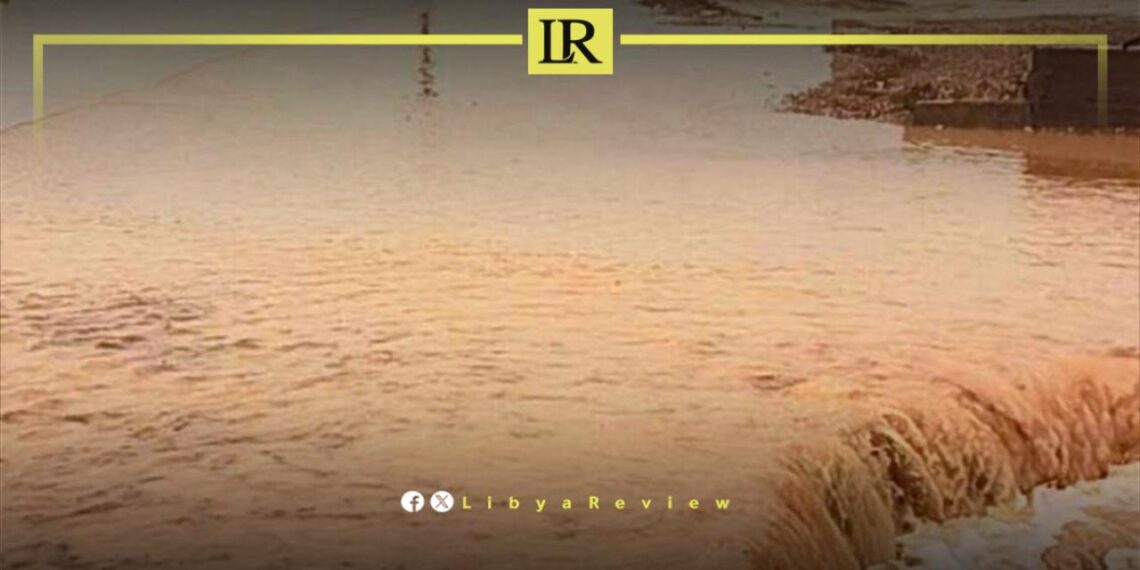The Emergency and Ambulance Services reported on Friday the tragic death of three children due to severe floods that have struck the Tehala region, located 60 kilometers from Ghat.
The service announced via its official Facebook page that efforts are ongoing to rescue elderly residents from the affected area. The floods have now reached the Tinkauya area in Al-Barkat.
Libya’s Interior Minister, Essam Abu Zeriba, appointed by the parliament-designated government, has directed the security directors of Sebha, Al-Shati, and Ubari, along with the central support branches in the southern region, to dispatch four-wheel-drive vehicles to Ghat, particularly to the Tehala area, to provide necessary support.
Mayor of Tehala, Ahmed Klikli, reported that the rainwater has completely inundated the neighborhoods, stressing the urgent need for blankets and tents as soon as possible.
This disaster follows the devastating impact of Cyclone Daniel, which swept through several regions in eastern Libya on September 10, leaving thousands dead and missing, alongside significant material damage.
Notably, the preliminary court in Derna began the trial of 16 Libyan officials, being held accountable for the destructive floods resulting from storm Daniel that struck the city.
Libya’s Public Prosecution decided to file criminal charges against the officials regarding the Derna flood incident, including the head of the Derna Reconstruction Fund, and a member of the financial committee responsible for its reconstruction plan.
In September, the Prosecution ordered the detention of four other officials in connection with the collapse of the Derna dam, for job performance shortcomings.
The Prosecution stated in its statement that the four officials include members of the Derna Municipal Council, the Director of the city’s reconstruction projects office, and the Head of the technical committee responsible for implementing its reconstruction plan.
A recent report by the United Nations Development Programme (UNDP) has shed light on the inadequate preparedness of residents in Derna, and neighbouring eastern Libyan cities for the devastating flood that struck the area. The report points to conflicting signals received by residents, which left them unprepared for the impending deluge.
In the period leading up to the catastrophic flood, residents of Derna and adjacent regions were subjected to mixed messages that sowed confusion. A curfew was imposed in Derna and other cities, with many residents receiving text messages advising them to stay indoors.
Simultaneously, other official statements urged the evacuation of coastal areas due to the threat of a sea surge. This inconsistency left residents without clear guidance, exposing them to the full force of the disaster.
The report emphasises the critical role of effective early warning systems in reducing disaster risks, and protecting vulnerable communities from severe weather phenomena. A robust system includes several key elements: providing accurate and timely alerts to residents, government authorities, and stakeholders; offering unified, clear, and actionable information through multiple communication channels such as mobile phone alerts, sirens, radio broadcasts, television channels, and social media; and ensuring widespread reach and accessibility, including for those with limited technology access.
On 10 September, a devastating storm swept through several eastern regions of Libya, notably the cities of Derna, Benghazi, Al-Bayda, Al-Marj, and Sousse. This resulted in significant destruction, and led to the loss of thousands of lives, injuries, and missing individuals.


